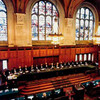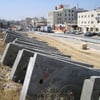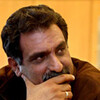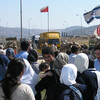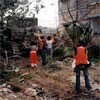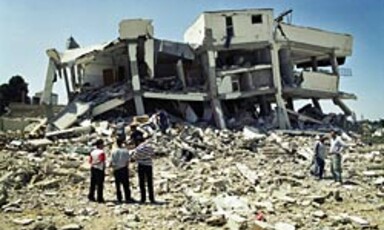
One Morning in Palestine
Bethlehem 8 July 2004
It was 2am Thursday morning, when I went to sleep, After following the news as usual, I was having a very tough migraine. I have experienced these tough migraines for a while because of the stress I have working as a journalist. I keep the walky-talky next to my head when I go to sleep, so that I can hear anyone calling me with urgent news, even while I’m having this migraine and at this time in the morning. I fell asleep, before someone began shouting on the walky-talky at 6am, and I jumped from bed to answer. His voice was deeply sad, and he was hardly able to talk, and he said “Fadi… Fadi… Ten Palestinians were just killed in Beat Hanoun village”. Read more about One Morning in Palestine
